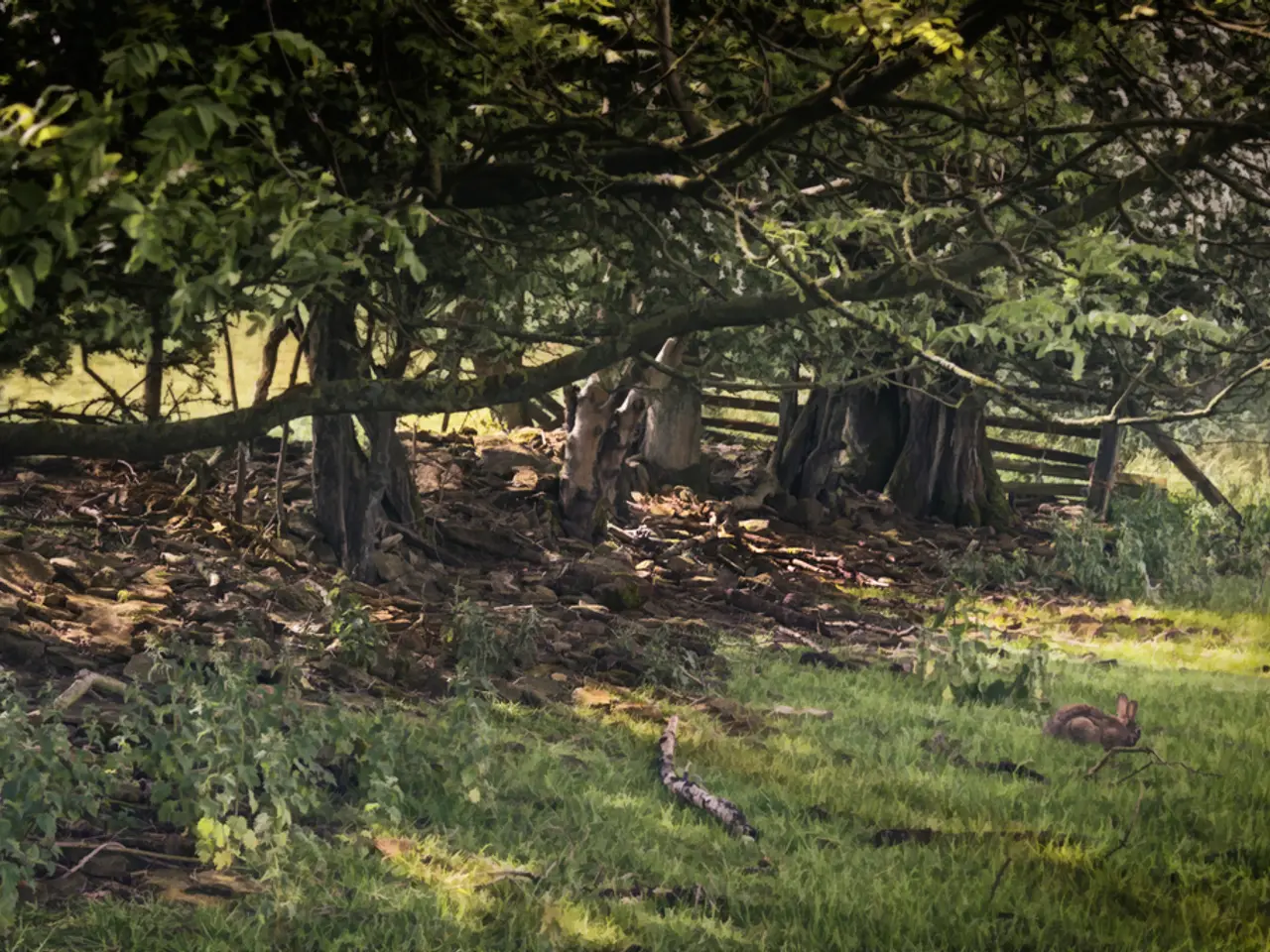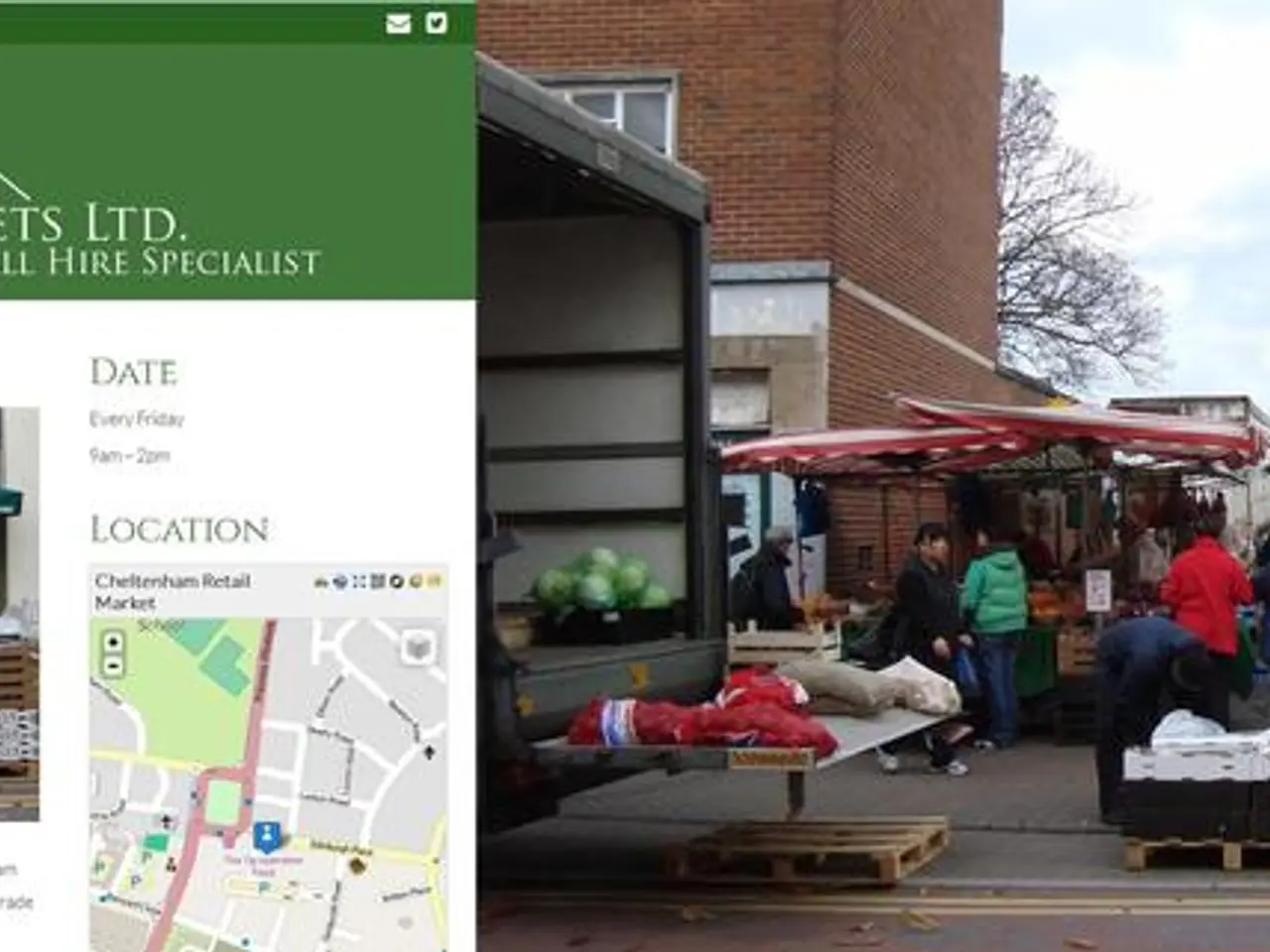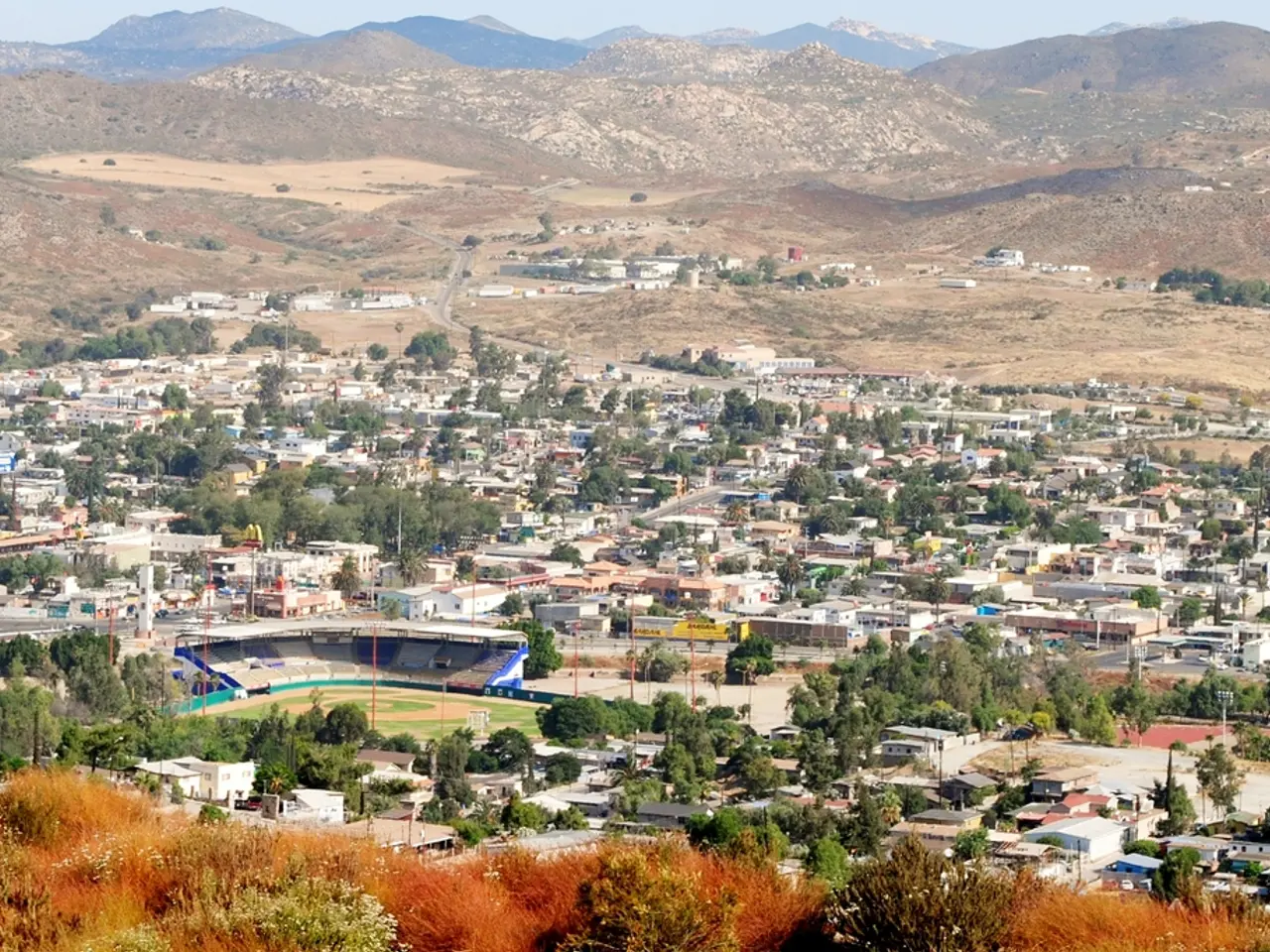Commencing fresh beginnings
In the heart of Düsseldorf, a remarkable transformation is underway. The city, in partnership with a citizen's foundation, is spearheading the 'Living Schoolyards' initiative, with the aim of making urban spaces greener and healthier. The project at Kempgensweg, a schoolyard slated for a makeover, is a shining example of this vision.
The de-sealing project at Kempgensweg, as per the council resolution "Dream Schoolyards," costs approximately 125,000 euros. This project is part of a larger citywide endeavour to create a more sustainable urban environment.
Sascha Maas, the Postcode Manager, highlights the importance of such initiatives. He states, "De-sealing schoolyards offers multiple benefits for soil protection, climate improvement, and biodiversity."
By removing concrete and other layers, the redesign of the areas allows for the creation of new habitats for birds and insects through insect-friendly planting. The de-sealed areas can potentially serve as habitats for these species, contributing significantly to improving the urban climate in its entirety.
Sabine Tüllmann, as the Chairwoman of the Citizen's Foundation, underscores the simplicity of climate protection through de-sealing projects. She emphasizes, "Climate protection can be simple through de-sealing projects. They not only improve the urban climate but also create new habitats for birds and insects."
The project at Kempgensweg includes the possibility of creating an insect meadow or a school garden. After the removal of layers, the usage variants for the de-sealed areas can include these options, providing pedagogical usage options as well.
Funding for such initiatives comes from various sources. The citizen's foundation finances the project with the help of the "Dream Taler," an award given by the Düsseldorf social lottery to non-profit organizations with innovative, social, and ecologically sustainable projects.
Additional funding can be sourced from state and local environmental grants, tire cleanup grants, waste management rebates, educational and community development grants, and collaborative assistance from municipal natural resource or recycling departments.
Schools looking to undertake de-sealing or greening projects should explore local and state environmental agencies, waste management authorities, and educational grant programs to identify suitable funding opportunities.
In conclusion, the de-sealing project at Kempgensweg is a testament to Düsseldorf's commitment to a greener and healthier city. By transforming schoolyards into green oases, the city is not only promoting environmental sustainability but also creating spaces that benefit local wildlife and provide opportunities for education and community engagement.
[1] Environmental Protection Agency (EPA). (2020). Green Infrastructure. Retrieved from https://www.epa.gov/green-infrastructure [2] National Wildlife Federation. (2021). Schoolyard Habitats. Retrieved from https://www.nwf.org/Educational-Resources/Wildlife-Garden/Schoolyard-Habitats
- To further enhance the benefits of the de-sealed areas at Kempgensweg, the project considers the creation of an insect meadow or a school garden, providing opportunities for environmental education and self-development.
- The Living Schoolyards initiative in Düsseldorf, as evidenced by the Kempgensweg project, showcases how science and education can merge in the pursuit of climate-change mitigation and environmental-science advancement.
- Continuous learning about sustainability and climate-change solutions can be fostered through partnerships and collaborations, as demonstrated by the funding sources for the Kempgensweg project, which include educational and community development grants.




